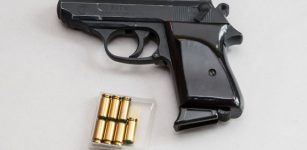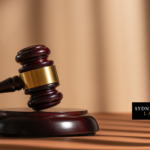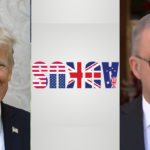Owning a Gun in Australia: Knee-Jerk Political Reactions

It might be hard to imagine now, but there was once a time when guns were accepted as an important part of the Australian identity, especially in rural areas.
But times have changed, and our gun laws came in the spotlight once again after the Lindt Cafe seige of December 2014, which left many asking the question: how could a man on bail for serious offences, and who posted threats on social media in the days leading up to the siege, get his hands on a gun and bring it into the Sydney CBD undetected?
Monis used an ageing Le Salle 12 gauge sawn-off shotgun during the siege, a weapon capable of firing four shots in five seconds.
Despite the tragedy, Australia has far fewer incidents of gun violence per capita than many other countries, and other several nations have looked towards us as a model for their own gun laws.
Like other disturbing incidents, the Lindt siege has triggered a knee-jerk reaction by the government – which decided to ban the Adler lever-action A110 shotgun without proper consultation.
The Ban on the Adler A110
The shotgun was temporarily banned by the Tony Abbott-led federal government after the Lindt shooting, pending a review. The ban was initially for six months, but was later extended to a full year.
The Adler A110 is marketed as “new technology”, “revolutionary” and a “game changer”. The government’s problem with this particular gun is two-fold: the speed at which it can fire – a rate of better than one bullet per second – and its effectiveness at firing on the move, from a car, quad bike or motorbike.
Unless the ban is extended, the gun will be available from August this year to anyone with a Category A gun licence – 7000 Adler A110s have already been pre-ordered by Australian residents.
Nationals Senator Bridget McKenzie says the ban was made without proper consultation. The same could be said of John Howard’s National Firearms Agreement, which came into effect less than two weeks after Martin Bryant murdered 35 people at Port Arthur.
Ms McKenzie points out that “Australia’s more than 800,000 licensed firearms users are not terrorists or criminals, they are responsible law-abiding members of our community and part of a broader industry that contributes in excess of $1 billion a year to Australia’s economy.”
Many people in rural areas say the Adler shotgun is especially useful for hunting feral pigs from the back of bikes and all-terrain vehicles.
On a more general level, the Sporting Shooters’ Association of Australia outlines the benefits of owning a gun, portraying shooting as a way to learn responsibility and empower individuals. For them, the question is not: why do you need this gun? But rather, why should citizens be prohibited from having the gun?
Australia’s National Firearms Agreement
In Australia, we have no constitutional right to own guns. In fact, we have very few guaranteed rights at all.
The National Firearms Agreement of 1996 resulted in the tightening of restrictions on firearms ownership and storage – and banned semi-automatic weapons except in limited circumstances.
After the implementation of the Agreement, murders committed with firearms decreased; and John Howard recently pointed out that suicides by firearm also fell.
However, pro gun groups highlight the fact that rates of gun and violent crimes had been falling even before the NFA, and have continued to fall since 2001 despite a dramatic increase in gun ownership. They see this as evidence that registered gun owners are not the problem, and that gun crime is overwhelmingly committed with illegally imported weapons.
There are an estimated 10,000 illegal handguns in Australia, many of them illegally imported, and the government has recently set-aside $88 million to monitor our borders for illegal importation.
Looking Forward
Senator David Leyonhjelm has spoken out against gun restrictions, describing Australia as a country of “disarmed victims”.
Prime Minister Malcolm Turnbull, on the other hand, has reaffirmed the Coalition’s stance on firearms, describing the current laws as “non-negotiable”. That position has bi-partisan support.
With a public divided, and both major political parties favouring tight restrictions, it appears likely that owning a gun will become harder rather than easier in the short to medium term.






